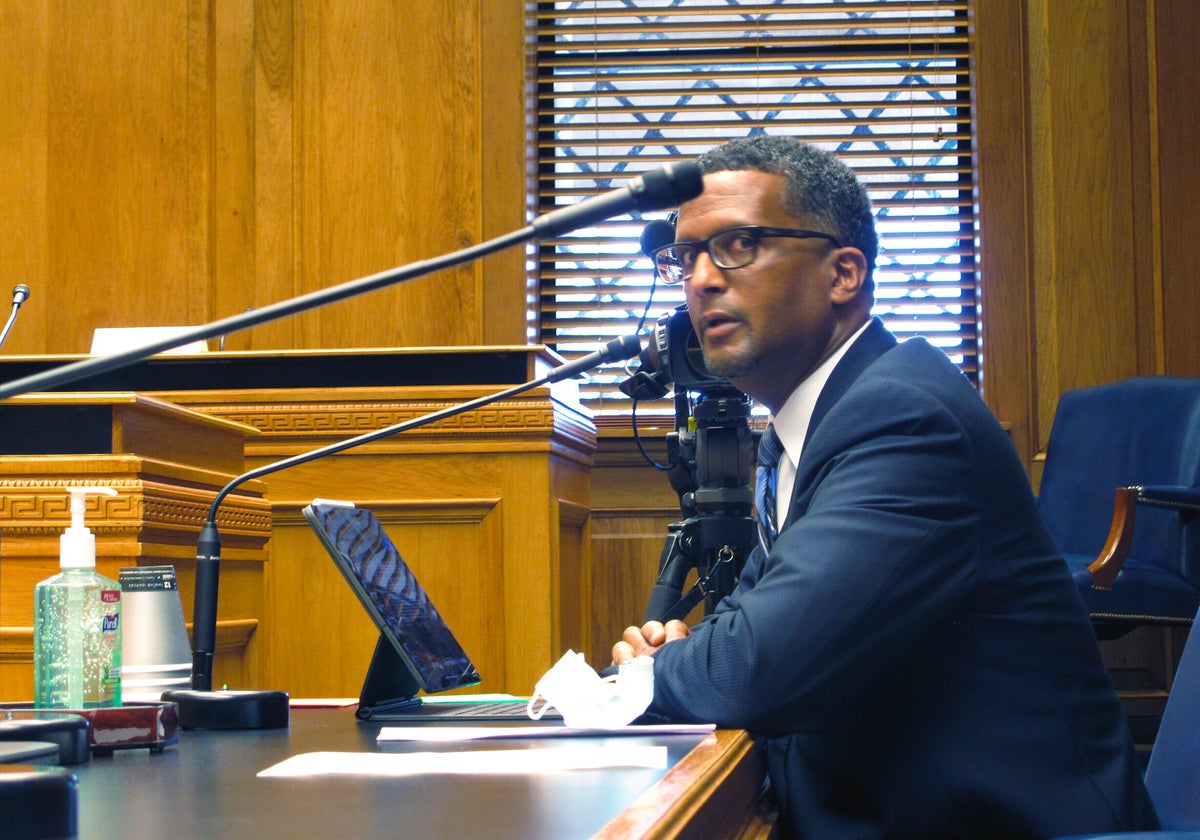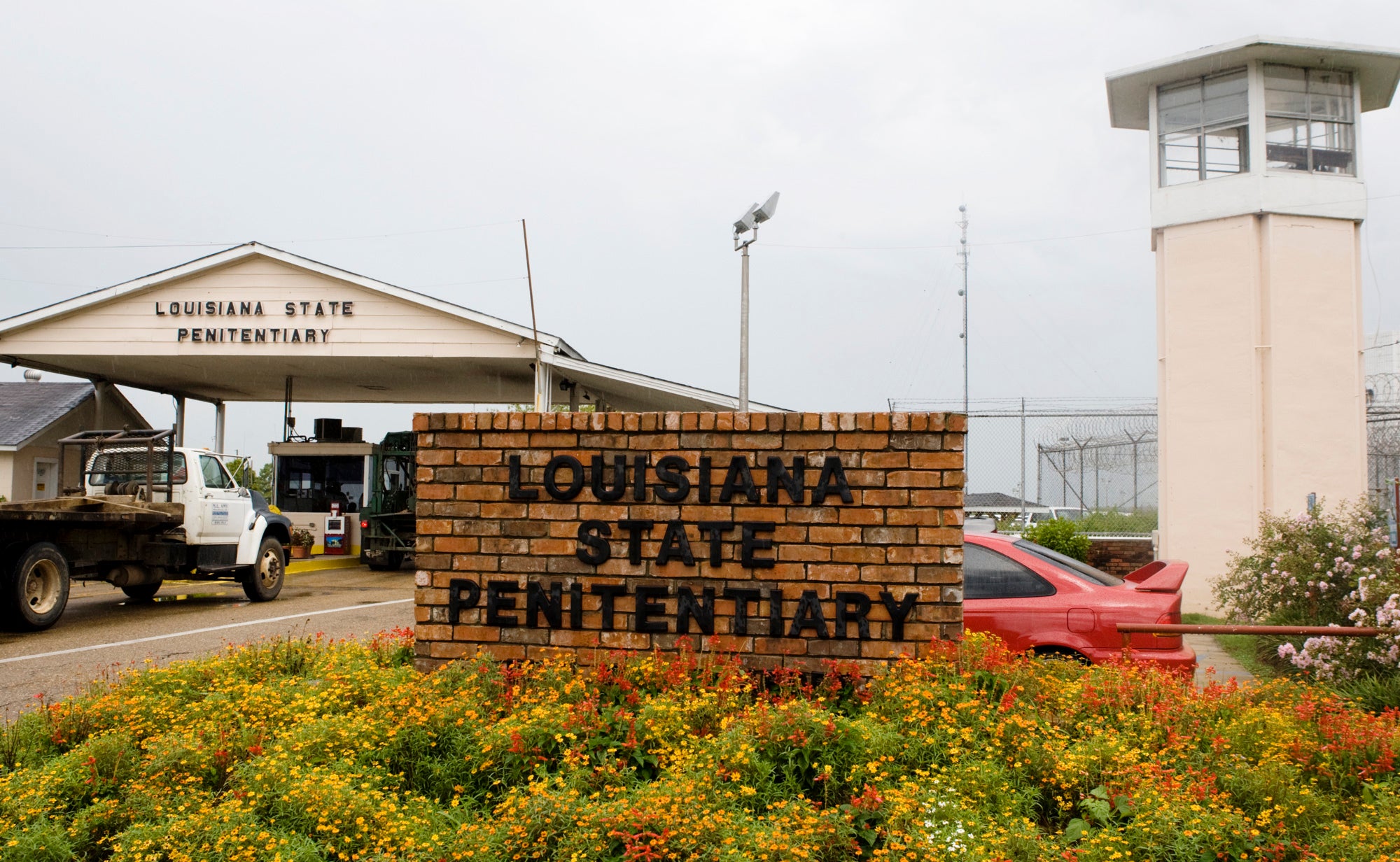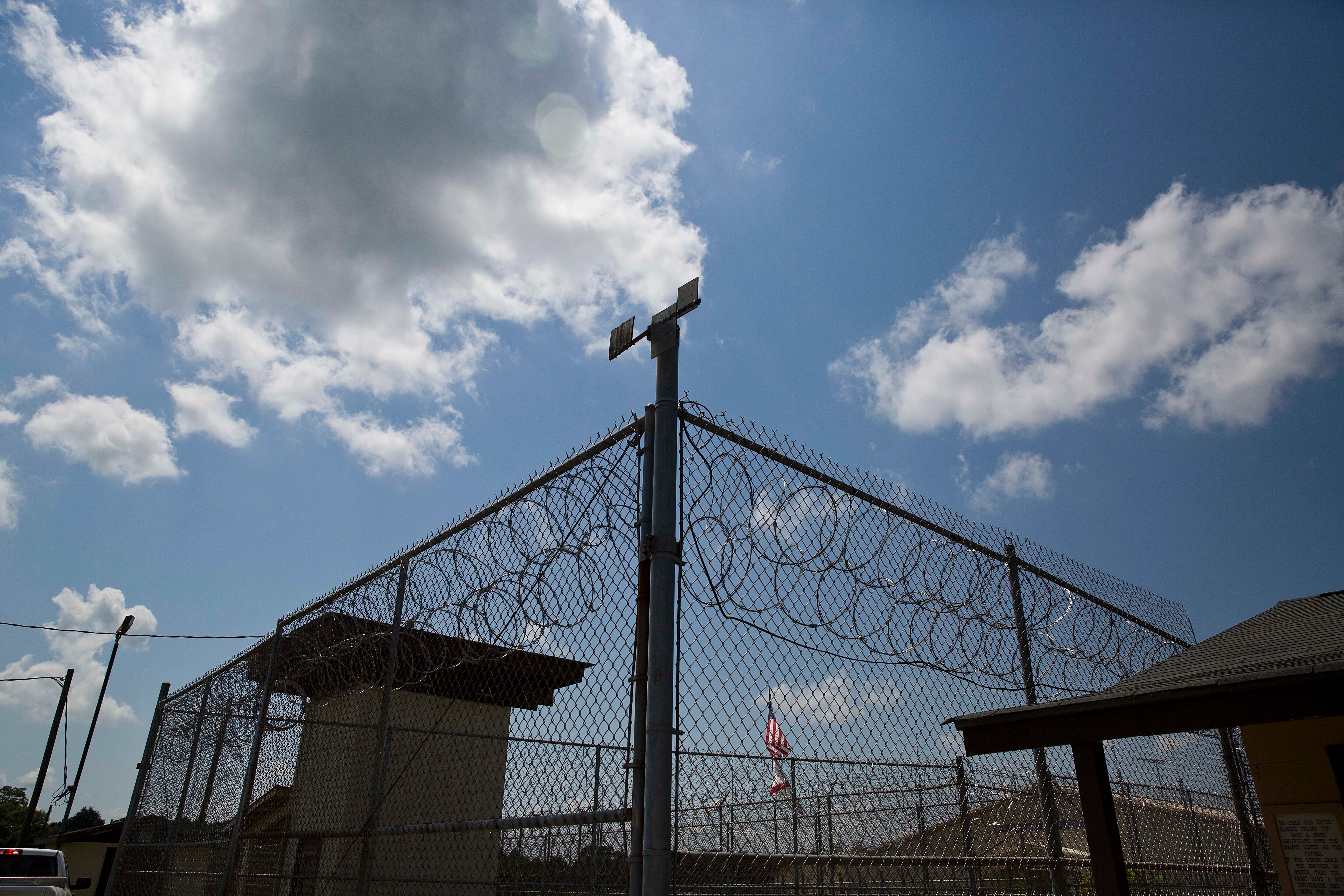
Curtis Davis spent nearly 26 years in Louisiana State Penitentiary, the site of a former plantation fueled by slave labour that is now among the largest maximum security prisons in the country.
He was sentenced to life in prison without possibility of parole after he was wrongfully convicted of second-degree murder, a conviction that was later overturned. He was released from the prison, known as Angola, in 2015.
While imprisoned, he worked at a quail barn for 20 years “all at the point of a gun,” Mr Davis said in a briefing over Zoom with reporters earlier this month.
More than 150 years after slavery’s formal end in the US, voters in five states will decide whether to close a devastating loophole that has effectively kept slavery in action: It allows prisons to send people convicted of certain crimes into forced labour.
“The Louisiana criminal justice system has used [its] legal apparatus as a weapon against mostly marginalized communities,” Mr Davis said. “We have returned back into a condition of slavery or involuntary servitude.”
Incarcerated workers in Louisiana prisons earn as little as 2 cents an hour, according to a report from the American Civil Liberties Union and the University of Chicago Law School Global Human Rights Clinic.
But every incarcerated person at Angola, a vast majority of whom are Black, begins their work in the fields, where enslaved people worked hundreds of acres of crops before the property began functioning as a prison in 1880.
Field labourers, supervised by correction officers on horseback, have few chances of promotion to other work, with virtually no access to water, rest or restrooms.
It’s a lucrative business. A poultry processing plant relied on incarcerated workers to avoid shutting down during the Covid-19 pandemic. A commodities trader bought nearly $2.5m worth of corn and soybeans from the state’s prison industry between 2017 and 2020. Livestock auction companies purchased at least $5m in livestock raised by prison labourers within that same time period.
The exploitation of incarcerated workers is legally allowed through the exception clause of the 13th Amendment to the US Constitution, which formally abolished slavery in the US in the aftermath of the Civil War.
While the 13th Amendment prohibits the enslavement of Americans, it exempts slavery as punishment for those convicted of a crime. An era of “Black codes” in economically devastated southern states in the war’s aftermath subjected harsh penalties against newly freed Americans for crimes like loitering or breaking curfew, ensuring they would remain in chains for decades to follow.
That exception remains in 20 states, allowing incarcerated workers “to be exploited, underpaid, and excluded from workplace safety protection laws,” according to the ACLU and Global Human Rights Clinic.
Today, roughly 800,000 of the more than 1.2 million people incarcerated in state and federal prisons are forced to work, generating roughly $11bn annually.

In 2018, Colorado voters were the first to remove such language from their state’s constitution through a ballot measure. Voters in Nebraska and Utah did the same two years later.
This year, voters in Louisiana, as well as Alabama, Oregon, Tennessee and Vermont will decide if their state constitutions will finally remove similar language.
The #EndtheException coalition, spanning dozens of state and local organisations, is leading a campaign to support their passage.
Mr Davis told reporters that the passage of the amendments would be the “crown jewel” of criminal justice reform, a key moment in an abolitionist movement that seeks to reshape the nation’s vast network of prison labour.
“Take it from a man who served 25 years, nine months, and 11 days as an involuntary servant,” Mr Davis said. “If you guys don’t believe that this changes anything, it’s only because you’ve never went through the condition of slavery.”
Vermont has prided itself as the first state in the nation to outlaw slavery, beginning in 1777, predating the Emancipation Proclamation, ratification of the 13th Amendment and the US Constitution itself.
But the state constitution has retained an involuntary servitude clause in certain cases, including as restitution for debt, damages and fines.
“We believe that at the end of the day when it comes on 8 November in Vermont that we will have accomplished something that has not been accomplished in 245 years in his state,” said Rev Mark Hughes, executive director of Justice For All and Abolish Slavery Vermont, in the aforementioned briefing.
The language on the Tennessee measure explicitly states that “slavery and involuntary servitude are forever prohibited” and that “nothing in this section shall prohibit an inmate from working when the inmate has been duly convicted of a crime.”
Tennessee “like the rest of the South made a seamless transition from plantations to prisons,” Theeda Murphy, lead organiser of Tennessee’s No Exceptions Prisons Collective said in the briefing.

“We have never been free. Slavery was never abolished, it was simply redefined,” she continued. “It’s way past time for universal abolition. As long as we make excuses for why it’s OK for human beings to be owned and treated like property, none of our dreams of a just and equitable society can be realised.”
Over the course of a three-week strike at correctional facilities across Alabama, likely the largest collective action and strike among incarcerated people in the state’s history, people imprisoned in the state alleged retaliation from officers in the form of starvation, solitary confinement and forced labour.
The state’s Department of Corrections announced on 17 October that the protests and work stoppages “have ended,” but a statement from organisers said the end of the latest campaign is “by no means a white flag,” and that incarcerated people may “escalate our strike, peacefully,” until demands are heard.
“We are still demanding our concerns be heard before our Legislators and other elected officials,” the group said in a statement. “We also demand that our outside representatives be given a platform to be our voice and the public hear our arguments.”
Voters in Alabama will determine whether to strike out all racist language from the state’s constitution, including a section on prison labour similar to the Tennessee measure.
“We know what it looks like,” said Savannah Eldridge, a lead organiser with the Abolish Slavery National Network, in the briefing. “It looks like working in the heat of the day and triple digit temperatures and Texas prisons with no air conditioning, or the rationing of food or other basic necessities in response to peaceful demonstrations, as in Alabama. What’s not arguable is that forced labor continues today.”
Similar referendums have passed with wide margins elsewhere in previous years. The measure in Nebraska passed with 68 per cent of the vote. Utah’s passed with 80 per cent in support. Yet, after the referendum in Colorado where 66 per cent of voters supported an amendment to remove the loophole, a judge dismissed a lawsuit that pressed for higher wages for prison workers.
Another lawsuit seeking to end the practise of compulsory prison labour is playing out in states courts, where attorneys for the state have asked that the case be dismissed.
Inmates Richard Lilgerose and Harold Mortis sued Colorado’s Democratic Governor Jared Polis and the Colorado Department of Corrections, arguing that the state continues to force people into work in conditions that amount to involuntary servitude.
The ballot measure in Louisiana is so far the only one that has drawn any recognisable opposition.
One of the original sponsors of the bill that drafted the referendum, Democratic state Rep Edmond Jordan, told The Times-Picayune/The New Orleans Advocate that he wants voters to reject it. Critics have warned that the measure could have “unintended consequences” and end up doing the opposite of what sets out to do. They’ve called on state lawmakers to rewrite the proposal’s language and reintroduce the measure at another time.
The state’s constitution currently states that “slavery and involuntary servitude are prohibited, except in the latter case as punishment for a crime.” The amendment would change that language to “slavery and involuntary servitude are prohibited, (but this) does not apply to the otherwise lawful administration of criminal justice.”
“This amendment is an example of why it is so important to get the language right when presenting constitutional amendments to voters,” according to public policy nonprofit group Council for a Better Louisiana, which is urging voters to vote against it.
Mr Davis has called such arguments “disingenuous at best and intellectually dishonest at worse.”
“The clear legislative intent of this initiative is to remove slavery and involuntary servitude from the constitution,” he said. “Our opponents of our initiative have orchestrated a confusion campaign to mislead voters about the meaning of the bill.”
Mr Davis said opposition to the amendment has suggested that an activist judge could sentence people to slavery and “say that that’s actual lawful activity of the criminal justice system,” but that disregards wording in the bill that probits slavery.
“If slavery and involuntary servitude are prohibited, period, than the otherwise lawful activity of the criminal justice system would be something other than the two outlawed parts of our amendment,” he said.







